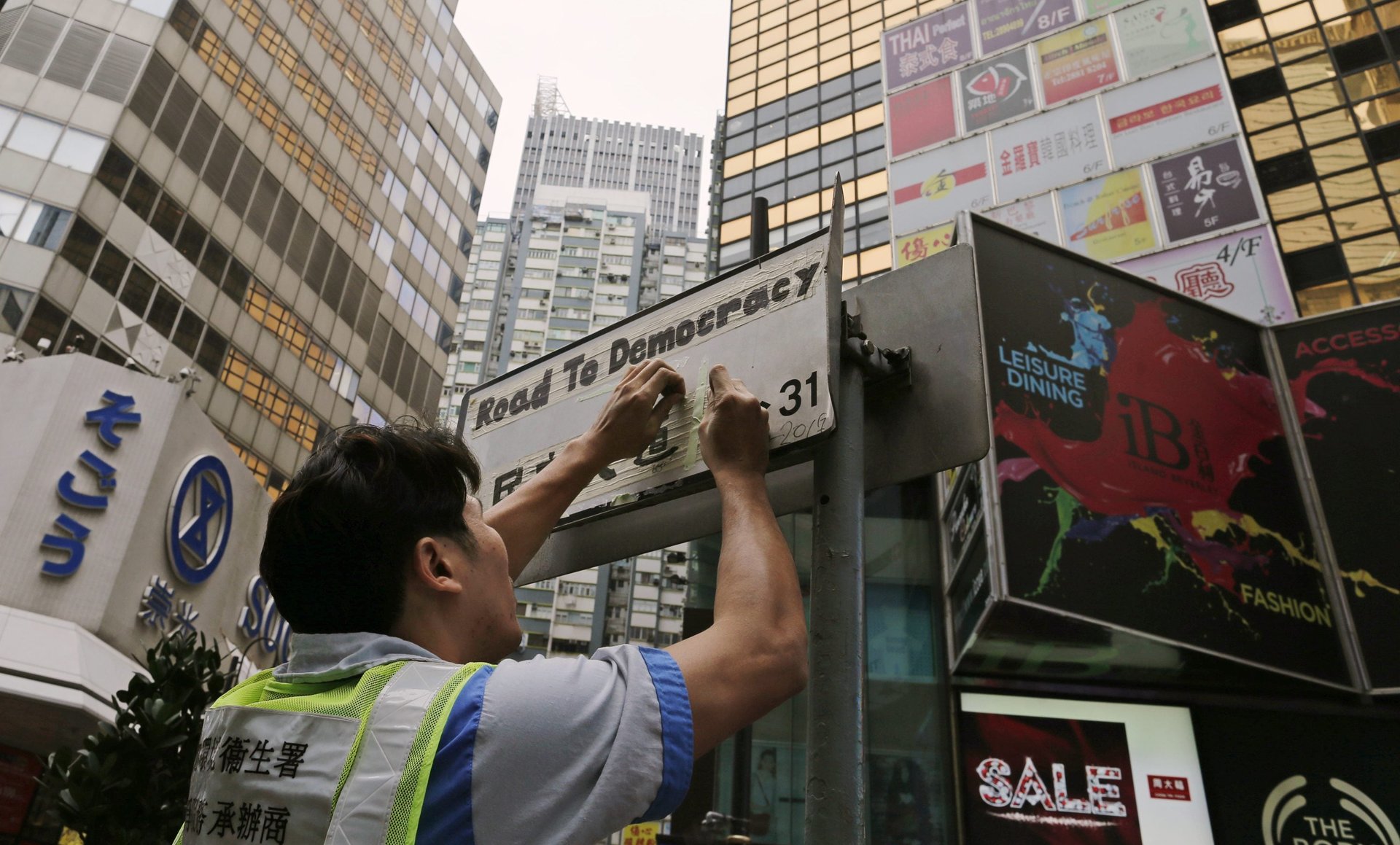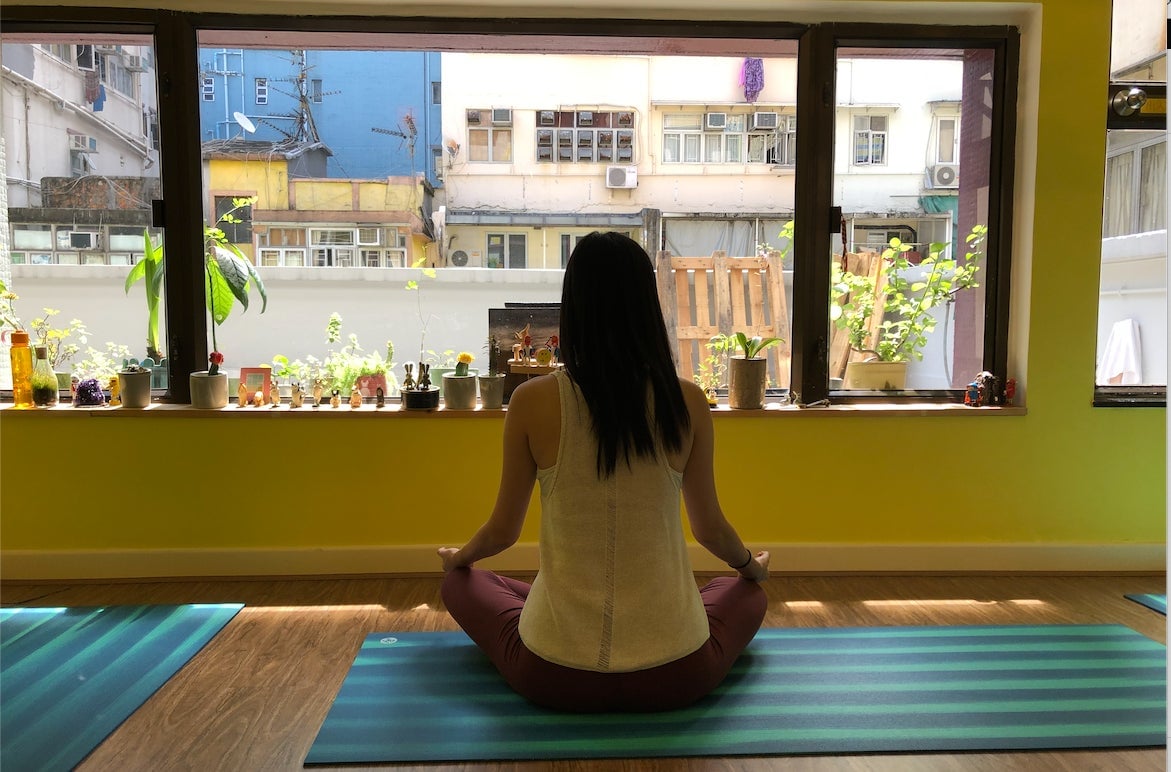Where you shop and where you eat is now a political choice in Hong Kong
Writing in her book Land and the Ruling Class in Hong Kong in 2005, Alice Poon, who formerly worked for some of Hong Kong’s biggest property developers, said that it was just a matter of time before deep-seated discontent over Hong Kong’s inequality led to widespread unrest, as people realized that “most of the money they earn with their hard work somehow has found its way to the pockets of the few powerhouses.”


Writing in her book Land and the Ruling Class in Hong Kong in 2005, Alice Poon, who formerly worked for some of Hong Kong’s biggest property developers, said that it was just a matter of time before deep-seated discontent over Hong Kong’s inequality led to widespread unrest, as people realized that “most of the money they earn with their hard work somehow has found its way to the pockets of the few powerhouses.”
Impossibly high property prices and other economic grievances certainly helped fuel the anger that led to the Umbrella Movement protests of 2014, as many wanted to break the influence of big business on politics they believed impeded democratic progress. Such frustrations were also an undercurrent in this month’s massive protests against a planned extradition law by the Hong Kong government, with economic actions forming part of a more quiet and symbolic form of resistance.
A wave of businesses, mostly small and independent companies ranging from cafes to yoga studios to porn sites, joined a strike on June 12 as a way of expressing their opposition to the extradition law, which, once passed, would allow Hong Kong to send suspects to mainland China to face charges. Over 1,000 businesses that pledged to strike were listed on a widely circulated spreadsheet (link in Chinese).
The strike was a small way to challenge a political system whose close ties with big business—in the eyes of many here—reinforces an oligarchic system that is grossly inequitable and unaccountable to people’s grievances because of a lack of real democracy. Instead of the electorate voting directly for their leader, the Hong Kong chief executive is decided by a committee of 1,200 people selected from a range of sectors heavily skewed toward the pro-Beijing business elite.
Nadia Tang, 34, co-owns a small yoga studio in Hong Kong’s Yau Ma Tei district on the 5th floor of a commercial building, and took part in the June 12 strike. She said that she feels the effects of the domination of real-estate tycoons and big business in her own life, as it’s almost impossible for a small fitness business to set up shop on street level because of extortionate rents. Though the impact of small businesses like hers going on strike is small, she said, she sees it as laying the groundwork for future battles such as in local and legislative elections, where opposition groups hope that growing public anger will erode support for pro-establishment parties.

While Hong Kong has long been recognized by groups such as US-based think tank Heritage Foundation as the world’s freest economy due to its low taxes and open markets, its inhabitants instead complain of high prices and lack of innovation due to the stranglehold of rich families and large companies in almost every sector in the city’s economy. For groceries, for example, there’s effectively a duopoly (pdf, p. 9) between a chain under the property conglomerate founded by Hong Kong’s richest man, Li Ka-shing, and its rival owned by Jardine Matheson, a firm whose roots go back to the days of opium trading. By one typical measure—median house price divided by median family income—Hong Kong is the world’s most expensive city, with visible disparity between rich and poor.
In recent years, there has been growing interest in so-called “ethical small shops” or “conscientious businesses,” terms Hong Kongers use for companies that charge fairer prices to customers, or are willing to speak up on political issues against the government in contrast to typically apolitical or pro-establishment large enterprises.
“I’m interested in putting my money into businesses that support (the protests),” said Daisann McLane, an American and long-time resident of Hong Kong who owns an independent tour company that was one of the businesses that went on strike on June 12. “Hong Kong is built on small business, but one of the problems that our form of governance unfortunately has encouraged is the growth of (tycoon-owned businesses).”
As protesters pledged their support to striking businesses, another detailed spreadsheet (link in Chinese) contained dozens of names of some of the city’s wealthiest tycoons, breaking down in granular detail the businesses they owned and calling for people to boycott them. Among those named were billionaire Li, and Michael Tien, a lawmaker who is among those able to vote for the chief executive, and founder of international work-apparel chain G2000.
Tien, who has opposed the extradition law, said that he didn’t see “any connection or relevance” at all between people’s economic grievances and the wave of protests in Hong Kong recently, highlighting the strong local economy and good employment prospects for graduates, but acknowledged that housing was a major concern. He attributed youth discontent in part to repeated governments ignoring their concerns. “They’re not gaining respect from government. That is the big source of frustration,” he said.
In the case of the extradition law, Hong Kong’s business elite have expressed unease, given extradition was initially proposed for a wide range of financial crimes, and the possible impact on the city’s attractiveness for business.
Protests have subsided after chief executive Carrie Lam said on June 15 she would suspend work on the extradition law for the rest of the legislative session. But calls for civil disobedience, including protests and financial actions, to put pressure on the government to fully withdraw the bill continue to spread on social media, including on small locally developed social networks that have seen a surge in downloads this month. The coming G20 summit, when world leaders will gather in Osaka to discuss the world economy, is providing another focal point for gatherings this week.
Taking aim at big business was also a core part of the 2014 protests, also known as Occupy Central, which called for true democracy in electing the city’s leader. They shut down streets in downtown and government districts for over two months, and the narrative that the protests were a disruption to business dominated the talking points of those critical of them.
To counter those criticisms, Ocean Leung, a 36-year-old artist, helped launch a Facebook group in 2014 to promote small businesses in the mostly working-class area of Mong Kok that was one of the sites of Occupy. The page continues to be active today, and has shared information about the anti-extradition-law protests, and related strikes and boycotts.
Leung said he has noticed a shift in attitudes of entrepreneurs in Hong Kong, particularly since 2014: “The newer face of Hong Kong business is much braver and they’re not scared of taking a stand. They believe they can be both conscientious, and be in business.”